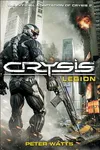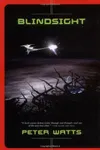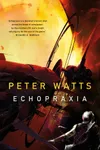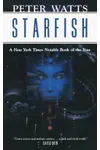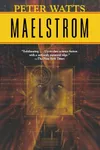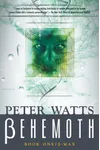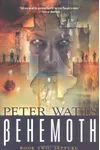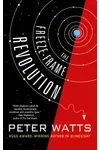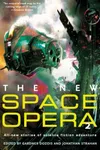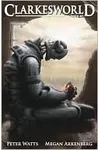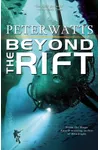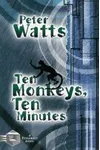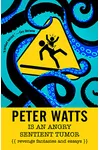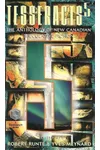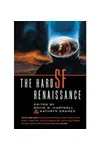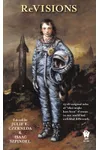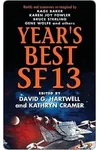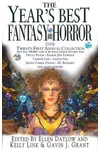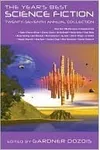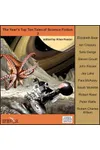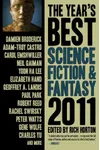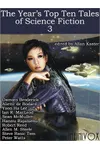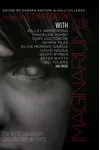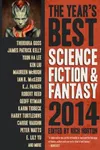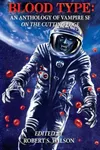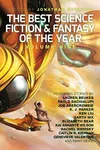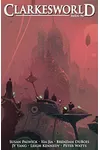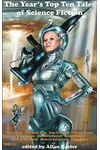Picture a Canadian marine biologist who swapped seal studies for space vampires and mind-bending sci-fi—meet Peter Watts! With a Ph.D. in zoology and a knack for hard science fiction, Watts crafts stories that probe the edges of consciousness, evolution, and humanity’s place in the universe. His novels, like the Hugo-nominated Blindsight and the gritty Rifters Trilogy, blend rigorous science with philosophical depth, earning him a cult following and academic acclaim.
But Watts isn’t just a writer; he’s a boundary-pusher who once faced a U.S. border detention and turned publishing on its head by giving his books away for free. Ready to dive into his world of deep-sea outcasts and alien intelligences? Let’s explore the life and legacy of this sci-fi trailblazer.
The Making of Peter Watts
Born on January 25, 1958, in Calgary, Canada, Peter Watts was drawn to the ocean early on, dreaming of marine biology by age six and writing by eight. He earned a Ph.D. from the University of British Columbia in 1991, studying the ecophysiology of marine mammals. His academic career included research and teaching, but the pull of storytelling was stronger. Watts began publishing fiction in the 1990s, channeling his scientific rigor into speculative narratives that challenge what it means to be human.
Peter Watts’s Unforgettable Stories
Watts’s debut novel, Starfish (1999), launched the Rifters Trilogy, a dark, immersive series set in a deep-sea power station. Its protagonist, Lenie Clarke, a bioengineered outcast, navigates a world of psychological trauma and apocalyptic microbes. The trilogy, completed with Maelstrom (2001) and βehemoth (2004–2005), blends gritty character studies with cutting-edge tech, earning praise as a fusion of Arthur C. Clarke and William Gibson.
His 2006 novel Blindsight, a first-contact tale, is perhaps his masterpiece. It follows a crew of misfits—including a vampire captain and a half-brained narrator—investigating an alien signal. The book explores consciousness and intelligence, suggesting aliens (and some humans) might thrive without self-awareness. Nominated for a Hugo Award, it’s a core text in philosophy and neuroscience courses. Echopraxia (2014), its sequel, dives deeper into transhumanism and hive minds, cementing Watts’s reputation for cerebral sci-fi.
Watts’s style is dense, unflinching, and packed with scientific references. His stories, often cynical yet laced with stoic hope, tackle big questions: Is consciousness a gift or a burden? Can humanity survive its own evolution? Fans love his ability to make complex ideas thrilling, though some find his prose challenging. His work, available in 24 languages, has won awards like the Hugo and Seiun, proving its global reach.
Why Peter Watts Matters
Peter Watts redefined hard sci-fi by blending academic precision with philosophical daring. His decision to release Blindsight for free under a Creative Commons license tripled its sales, rescuing it from obscurity and inspiring other authors to rethink publishing. His novels, used in university courses from philosophy to neuropsychology, spark debates about consciousness and humanity’s future. Watts’s influence extends to video games like Crysis 2, where he consulted, and BioShock 2, which cites his work.
Despite a 2009 border incident that led to a felony conviction, Watts remains a beloved figure, his wit and resilience shining through. He’s a reminder that sci-fi can be both brainy and bold, challenging readers to question the world—and themselves.
About Peter Watts
- Born: January 25, 1958, Calgary, Canada
- Key Works: Starfish, Blindsight, Echopraxia
- Awards: Hugo Award (2010, novelette “The Island”), Seiun Award
- Fun Fact: His cat appeared in the journal Nature!
Snag Blindsight and dive into Peter Watts’s thrilling, brain-twisting sci-fi universe!
